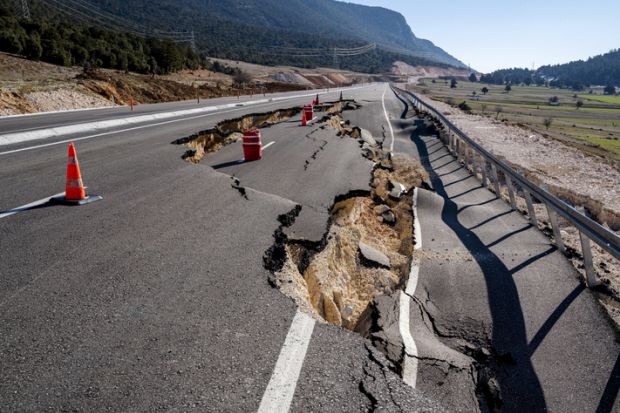The withdrawal of some of the top US law schools from a leading college ranking will not be just a “tempest in a teapot”, one academic has predicted.
Colin Diver has been sceptical of the rankings industry since his time as dean of the University of Pennsylvania law school.
But he was now optimistic that increased scrutiny of the role the US News and World Report rankings play in higher education will lead to more institutions joining the “revolt”.
In November, Yale University’s law school announced that it would no longer participate in the annual rankings, and within weeks 13 of the top 15 ranked law schools in the country had done the same.
Explaining the reason for Yale’s withdrawal, law school dean Heather Gerken criticised several elements of the ranking’s methodology, claiming that it punished institutions which sent large numbers of graduates into public interest careers or further study, and discouraged them from admitting students from disadvantaged backgrounds.
Within “very homogenous” law schools where status is the primary distinguishing factor, Professor Diver said it was common for deans at other institutions during his tenure to game the system to improve their ranking.
This could include “outright cheating” or artfully tweaking policies to increase their chances of moving up the table and attract potential applicants who paid “slavish attention” to the rankings.
In Breaking Ranks: How the Rankings Industry Rules Higher Education and What to Do about It, Professor Diver argues the rankings have induced college applicants to focus solely on pedigree and prestige, while tempting educators to sacrifice academic integrity for short-term competitive advantage.
The book’s release coincided with multiple colleges being accused of misreporting data for the rankings, which may have led the number one ranked law school for decades to break the “ice jam” and withdraw.
Professor Diver, who was president of Reed College when it pulled out in 1995, said Yale’s decision freed its rivals to join a “revolt against the rankings” – despite knowing the danger of such a decision.
“Frankly, I’m disappointed that more of the universities and colleges haven’t seized the moment,” he said. “It’s possible they’ll look at what’s happened to the law schools.
“US News is fiercely intent on protecting their brand, so it wouldn’t surprise me if they punished the boycotters to deter any others.”
Professor Diver suspected that the timing of the law schools’ revolt was linked to the season of the year when the annual questionnaires are sent out, and hoped that the same will apply to undergraduate colleges early in 2023.
He said there were already commentators calling recent developments a “tempest in a teapot”, but it was the first time anyone has had the “guts” to withdraw in decades.
“It’s not just some relatively obscure little school – this is Yale, this is Harvard, this is Columbia. This is the big time, and I think this is a momentous event.
“It’s very hard to predict where it will lead but I don’t want to suggest for a moment that it isn’t a very significant event.”
Register to continue
Why register?
- Registration is free and only takes a moment
- Once registered, you can read 3 articles a month
- Sign up for our newsletter
Subscribe
Or subscribe for unlimited access to:
- Unlimited access to news, views, insights & reviews
- Digital editions
- Digital access to THE’s university and college rankings analysis
Already registered or a current subscriber? Login








